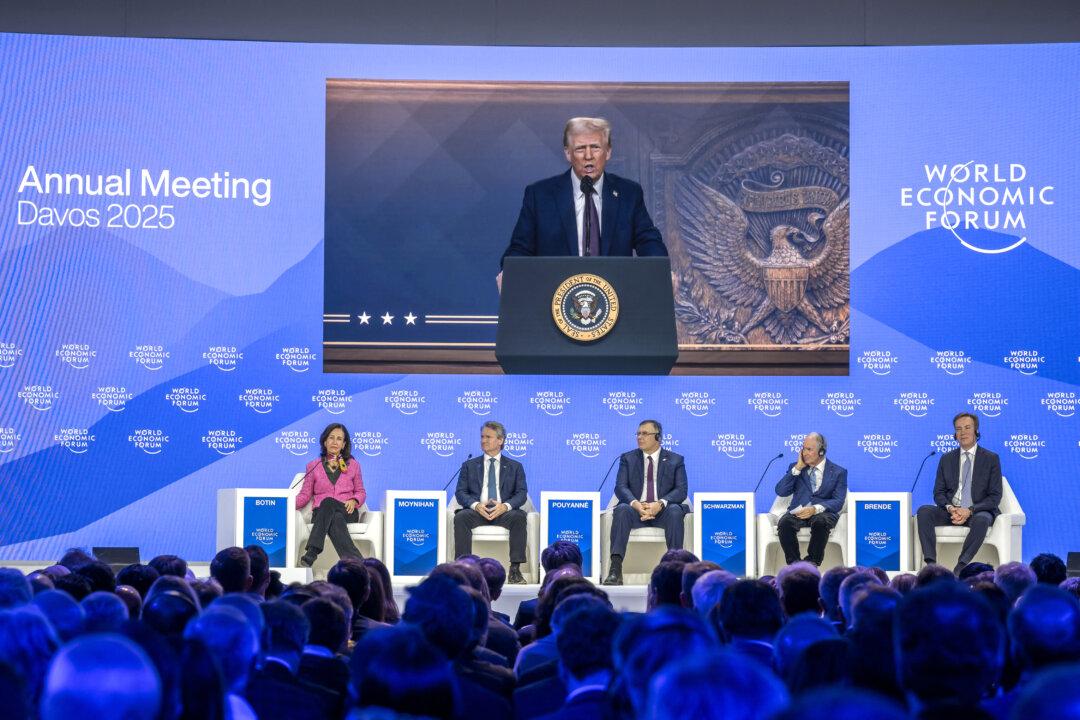President Donald Trump, speaking by video link to attendees of the World Economic Forum annual summit in Davos, Switzerland, castigated large banks for their alleged refusal to serve a number of conservative individuals and organizations.
Addressing, in particular, Bank of America CEO Brian Moynihan and JPMorgan Chase CEO Jamie Dimon on Jan. 22, Trump urged them to end political discrimination at their banks.





